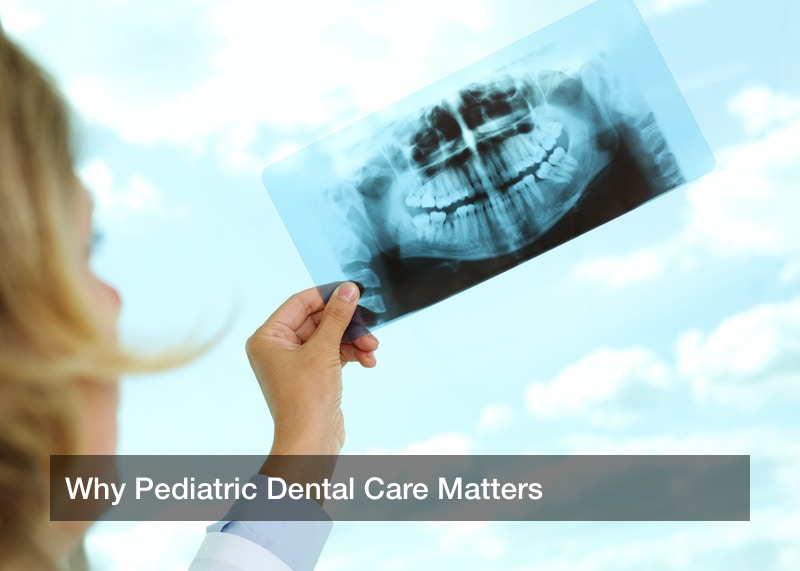
If you have a child or even multiple children, you likely already know that the care and keeping of their health is a significant responsibility that comes with being a parent. After all, the typical baby, even one who is in perfect health, with need to see the pediatrician a great number of times over the first year of life. This is important for tracking growth and development and assessing overall health during this pivotal time for your baby’s brain and body alike. But it’s not the only medical care that babies require.
Dental care is necessary as well – and far too few parents are aware of exactly what this means. Ideally, you’ll begin to care for your child’s dental health as soon as teeth first develop – something that can occur as early on as after only just a few months of life. In fact, the average baby will get a first tooth at around six months, though they can come in earlier or quite a bit later on.
Once this first tooth is present, wiping it down with a wet washcloth will be key, eventually graduating to toothpaste and a toothbrush as your child grows. It’s important to note that while toothpaste can be used once your baby reaches toddlerhood, fluoride free toothpaste should be used until they reach their second birthday. After this point, small amounts of regular toothpaste that has fluoride in it can typically be introduced. Such as is the case with adults, the brushing of teeth should occur twice throughout the course of a day, as per the recommendation of the American Dental Association.
Taking your child to a pediatric dentist is also a must. Fortunately, pediatric dentists are plentiful nowadays, and you’ll likely have a number of pediatric dentists to choose from in your area. Pediatric dentists typically want to see a patient by the time that they reach their second birthday, as starting your child with pediatric dentists young can be ideal for preventative dental care and setting good dental health habits from an early age.
After all, far too many children are having dental problems early on in life. In fact, very nearly half of the population of children entering kindergarten have already had at least one cavity, if not even more than one. And very nearly 20% of all kids who fall between the ages of five and up have untreated cavities, cavities that will unfortunately be likely to grow and to spread if they are not dealt with quickly. And while there is certainly a genetic component to how many cavities that you get and the overall health of your teeth, lifestyle and dental care also play a significant role, as all pediatric dentists know.
And pediatric dentists also want to share the fact that baby teeth matter – and quite a bit more than many people (including parents) think. Sadly, far too many people are under the impression that baby teeth don’t really count, as they will eventually just fall out anyway. However, this is certainly far from the case, as baby teeth instead act as placeholders for the adult teeth that will soon come in. This typically happens at around the age of six, though this will vary from child to child. If the baby teeth have not been well cared for, it is far more likely that the adult teeth that replace them will have a number of inherent problems as well.
Aside from this, poor dental hygiene and dental care can have an impact on many other aspects of the typical child’s life. In fact, it can even impact the education that they receive. This is due to the fact that children who don’t get the proper dental care are far more likely to suffer from dental pain. And dental pain can easily keep a child out of school, sometimes for a number of days. In fact, such children are actually up to three times as likely to miss school in comparison to their peers who see pediatric dentists on a regular basis and also take good care of their teeth. This goes to show how all encompassing the problem of poor oral health can really be, especially for children.
